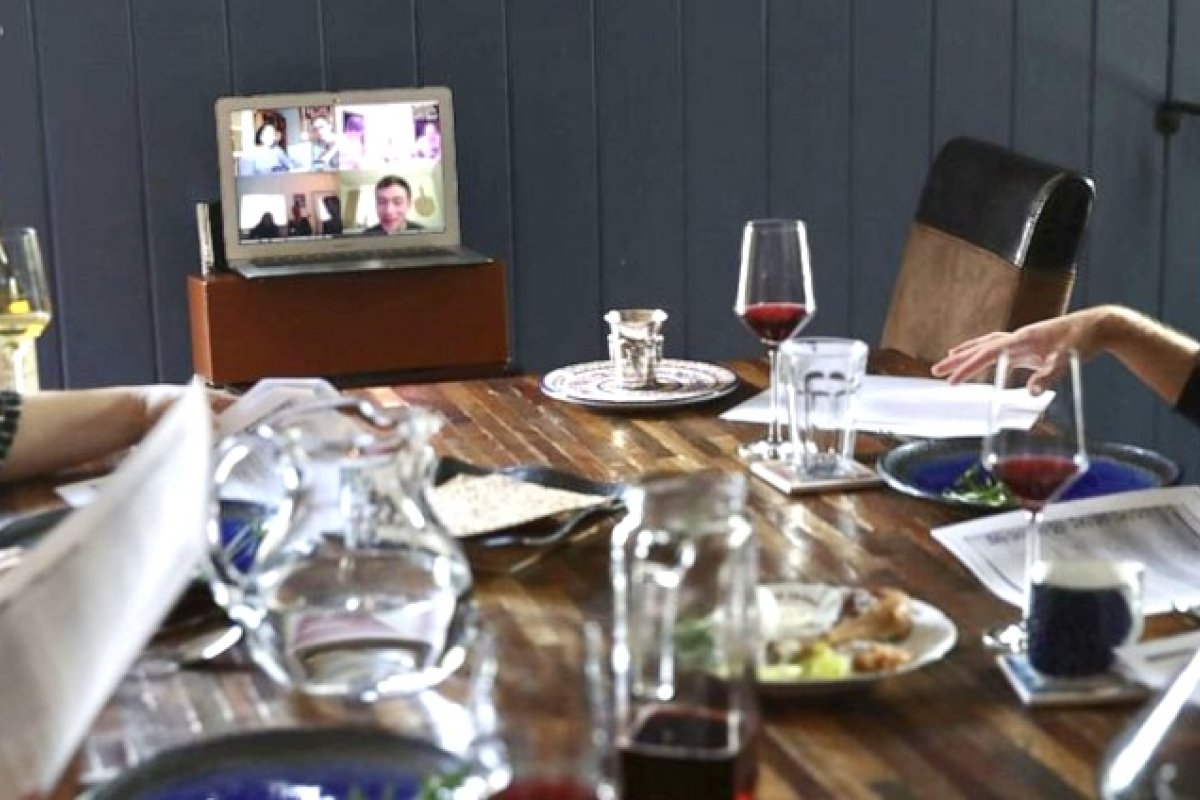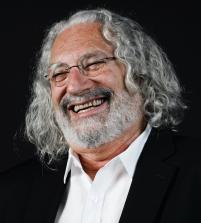
Stories Make Us Human
A Rabbi's reflections on Passover 2020
Passover 2020/5780 was experienced by Jews around the globe with improvised Seders and the creation of entirely new forms of remembrance and celebration. Traditional Seders are the service of reading from the Haggadah, literally the “telling” of the Passover story; they are the essential family and communal gatherings but were prohibited because of the pandemic. We eat foods that visually and in taste help us experience the ancient origin of the Jewish people. “And when your children ask you, ‘What do you mean by this rite?’ You shall say, ‘It is the Passover sacrifice to the Lord, because God passed over the houses of the Israelites in Egypt’” (Exodus 12:26-27). This verse is interpreted as the rationale behind the Seder.
More impressive is the biblical command in Exodus 13:8: “And you shall explain (He’gadtah) to your child on that day, ‘It is because of what God did for me when I went from Egypt.’” The Hebrew verb HGD—meaning to explain or tell—is the root of the noun Haggadah, the book read during the Seders. Many commentaries argue that reading from the Haggadah is a pedagogical insight into the family’s purpose. Parents are supposed to tell/explain the past through the symbols, food, and songs so that the children and grandchildren will be able to do the same when they have their own families. Maybe this is why the Seder is the most observed ritual of Jewish life, despite the many different labels of Jewish identity.
This year, of course, we were forced to trade large family gatherings for virtual Seders. Surely there were many new commentaries on the meaning of Maror—bitter herbs, the salt water into which we dip the early spring vegetable—or the new meaning of opening the window and saying so all can hear, “This is the bread of Affliction, let all who are hungry come and eat!” Whatever we hoped that we accomplished during these pandemic Seders, many of us left hungry and dissatisfied because the most essential purpose of the Seder was not fulfilled; telling the story so that the next generation would understand it in their own lives.
A friend of mine, who remains stranded alone in his apartment in Israel and was unable to return to his family in Rio de Janeiro, suggested that we plan another Seder for whenever we can all safely gather again. He correctly understood that we could not postpone the date on the ritual calendar; yet we have to do what we can to sustain any sense of family and community. Whenever we have these post-pandemic “Freedom” Seders there will be very important stories that we must tell about our experience with COVID-19.
The Haggadah and Seder have always been the most adapted and revised of Jewish rituals, so integrating the stories of Pesach 2020 will not be difficult. The Seder has been able to absorb the stories of the Crusades, pogroms, Auschwitz, Civil Rights, women’s rights, LGBTQ rights, and of course secular Jewish life in Israel and around the world. The Haggadah is meant to be an explanation of how the biblical past meets the present moment, bringing together the entire collection of the stories from our lives.
We must collect the stories of this pandemic and the Pesach during which our lives were changed forever. This extraordinary challenge reminds me of a famous story about the power of stories that Elie Wiesel often told:
When the great Rabbi Israel Baal Shem Tov saw misfortune threatening the Jews it was his custom to go into a certain part of the forest to meditate. There he would light a fire, say a special prayer, and the miracle would be accomplished and the misfortune averted.
Later, when his disciple, the celebrated Magid of Mezritch, had occasion, for the same reason, to intercede with heaven, he would go to the same place in the forest and say: “Master of the Universe, listen! I do not know how to light the fire, but I am still able to say the prayer.” And again, the miracle would be accomplished.
Still later, Rabbi Moshe-Leib of Sasov, in order to save his people once more, would go into the forest and say: “I do not know how to light the fire, I do not know the prayer, but I know the place and this must be sufficient.” It was sufficient and the miracle was accomplished.
Then it fell to Rabbi Israel of Rizhyn to overcome misfortune. Sitting in his armchair, his head in his hands, he spoke to God: “I am unable to light the fire and I do not know the prayer; I cannot even find the place in the forest. All I can do is to tell the story, and this must be sufficient.” And it was sufficient.
When Elie Wiesel told this story, he concluded that God made humans because God loves stories.
We had to be safe in order to survive, and yet not gathering in the traditional way to observe Pesach is being true to the religious commandment behind the holiday. No matter whether we used Zoom or Skype or Facebook, it was not meant to be a great Seder, at least not as we’ve come to expect, because we did not have the laughter or arguments that every family experience. Now, however, we can begin to tell and gather the stories of this unique Jewish experience in each of our lives. When it is safe, a date that will not be the same in every community, we will gather for postponed Seder meals expressly to hug, kiss, laugh, yell, and yes, surely cry about these events, and it will be an amazing act of the Jewish communal expression, L’Chaim—to life. Most of all, we must share and tell our stories because surely this is what we all need to feel more human.
Sightings is edited by Joel Brown, a PhD Candidate in Religions in the Americas at the Divinity School. Sign up here to receive Sightings via email. You can also follow us on Facebook and Twitter. The views and opinions expressed in this article are those of the author and do not necessarily reflect the position of the Marty Center or its editor.
Image: A family in San Anselmo, California, celebrate Passover Seder with extended family by video conference. (Photo Credit: Ezra Shaw)


